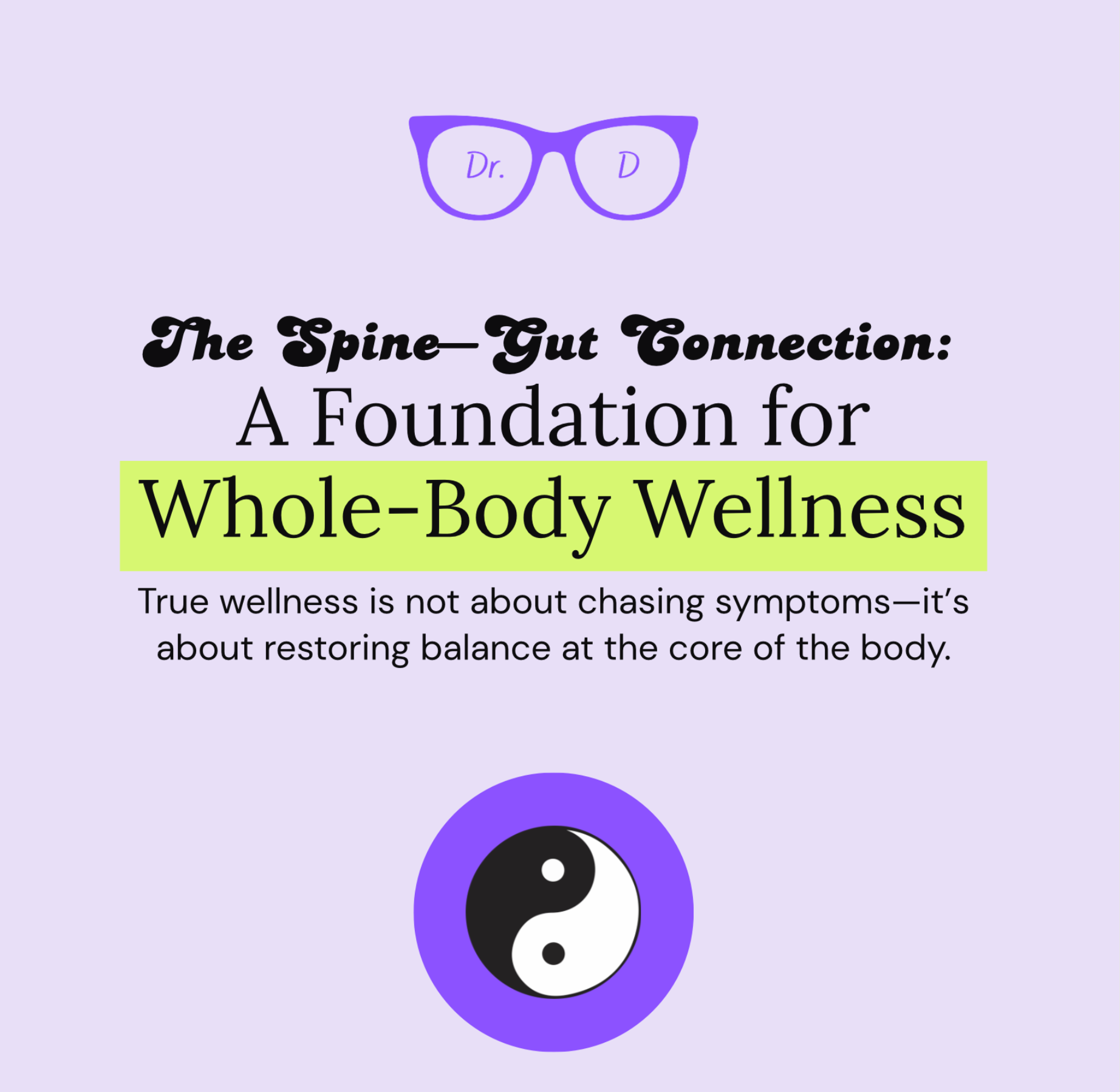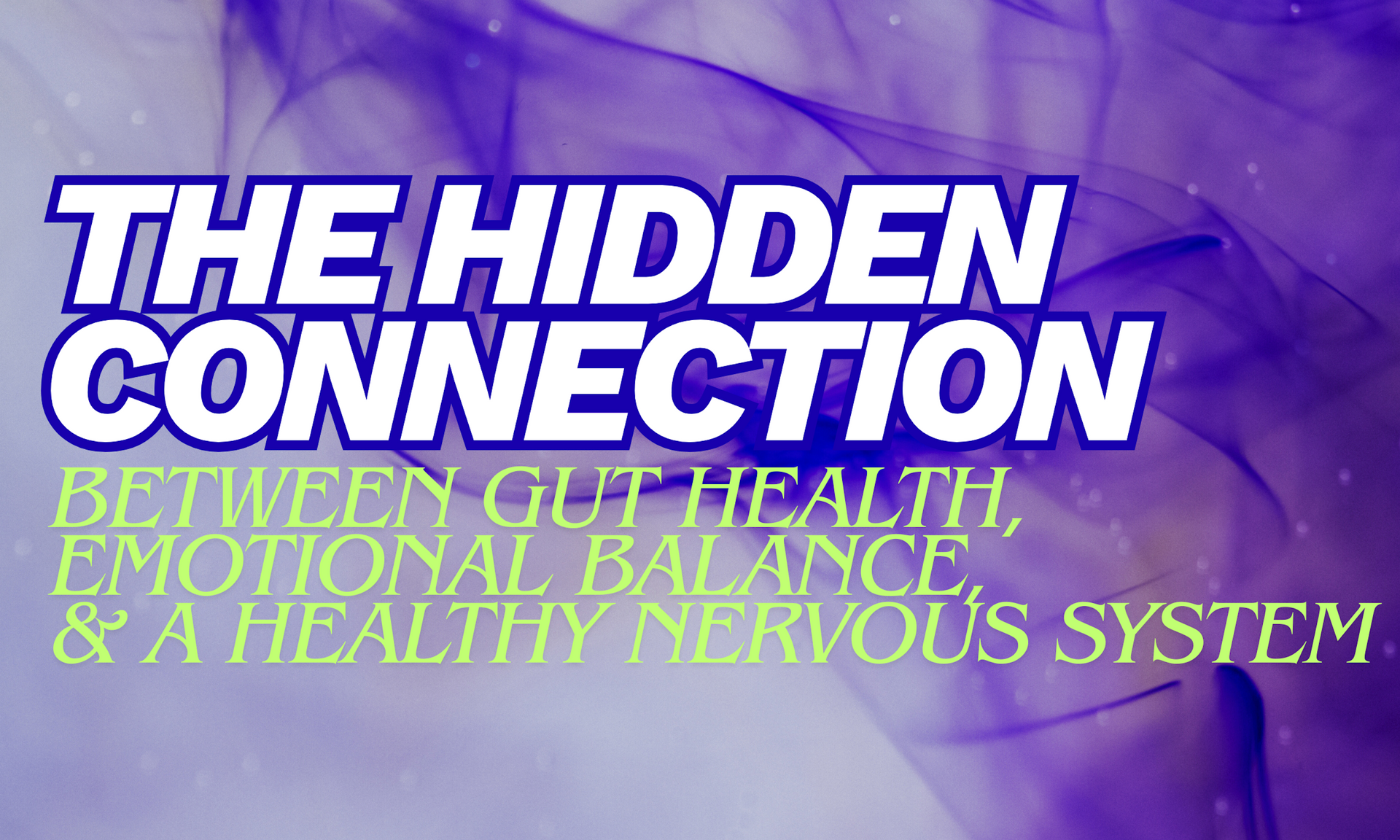Nutrition for Mental Health, Minerals for Gut Health and Heavy Metals 101

Nutrition for Mental Health
Not only does your brain influence what you eat, what you eat influences your brain. This bidirectional relationship between the gut and the central nervous system is modulated by diet, the microbiome, and inflammation. That means that your nutrition has a direct impact on mood, cognitive function, and mental health (for better or worse).
An Anti-Inflammatory Diet
Eating a processed, low-nutrient diet is correlated with increased rates of depression and anxiety. On the other hand, eating a nutritionally-wealthy, Whole Foods diet decreases risk for these mental health issues.
To support optimal mental health (and overall health), fill your plate with colorful vegetables and fruits, quality protein, healthy fat, whole grains and legumes, and flavorful herbs and spices. Improving your diet can have a profound impact on mood, sleep, energy, and focus in only a few weeks.

The enteric nervous system is often called a 'second brain' because it is composed of hundreds of millions of neurons that regulate blood flow, muscle contractions, secretions, immune function, and neurotransmitter production in the gut.
Minerals for Gut Health
CALCIUM
Increases HCI gastric acid secretion
Improves intestinal permeability
Eases diarrhea
MAGNESIUM
Balances calcium's stimulatory effect on HCI
Supports regularity of bowel movements
Improves gallbladder emptying
Relieves constipation
SELENIUM
Supports pancreatic health
Used to create anti-inflammatory selenoproteins
Provides antioxidant effects in gut and pancreas
ZINC
Used to produce pancreatic digestive enzymes
Supports tight junctions of gut lining
Regulates immune cells in gut
Decreases inflammation and oxidative damage
Protects against iron and copper toxicity
Increases microbiome diversity
Eases diarrhea
ELECTROLYTES
Sodium, potassium, and chloride support proper hydration, which impacts bowel motility, fluid balance, and regularity
What about iron?
While iron is a necessary mineral, too much iron in the gut is inflammatory and feeds microbes (the wanted & unwanted).

Heavy Metals 101
Lead, arsenic, mercury, cadmium, and aluminum are the heave metals of most concern to human health. Even very small amounts can cause serious consequences.
They compete with other essential minerals, leading to nutrient deficiencies, gut dysbiosis, decreased bone density, anemia, enzyme and hormone dysfunction, DNA and mitochondria damages, impaired nerve signaling, and cell death.
Chronic exposure or impaired detoxification of heave metals can result in a build-up in the liver, heart, and brain. Each individual has a different capacity to store and detoxify these minerals as nausea, headaches, gut issues, joint pain, muscle weakness, or conditions like dementia, diabetes, autoimmunity, cardiovascular disease, and cancer.
You can support healthy mineral balance by decreasing heavy metal exposure, supporting regular detoxification (like a weekly ion balancing detox foot bath), and maximizing your dietary intake of antioxidants and minerals.

SOURCES: food, water, air
- industrial waste
- fertilizers
- metal pipes
- old paint
- IUDs
- dental fillings
- vaccines
- deodorant
- supplements
- cookware
- occupational exposure
Fish, seafood and crops grown in contaminated soil are primary dietary sources of heavy metals.
Most exposure from these sources is 'below the tolerable limit', meaning it will not result in acute toxicity. However, each can contribute to cumulative levels in the body.
A relaxing, easy way to rid your body of these harmful toxins is a weekly ion balancing foot bath with Dr. D. Learn more about this service here.

If you feel that your current diet and wellness routine are not properly nourishing your brain and body or have questions, contact Dr. Diana Mladenoff today. Schedule an appointment by TEXTING (or calling) our Arizona Wellness Clinic located in the Phoenix area of Arizona at 1 (602) 524-0222.






